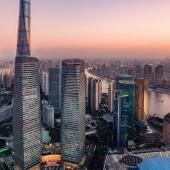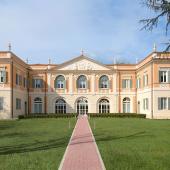The South African construction industry: outlook to 2025
According to the report entitled “Construction in South Africa - Key Trends and Opportunities to 2025”, the decline experienced by South African construction industry in 2021 due to the Covid-19 pandemic, will be recovered in the current year with growth of around 9.1% in real terms. The industry will then stabilize at an annual average growth of 3.1% between 2023 and 2025, although output will not return to pre-pandemic levels during the forecast period. The industry’s growth during the period will, however, be supported by large-scale government infrastructure investments in transport, energy, residential, telecommunication and industrial projects.
In November 2021, the National Treasury announced a plan to spend R2.3 billion (about €142.6 million) in the financial year April 2021 to March 2022 to assist in rebuilding businesses affected by the third wave of the pandemic and reconstruct infrastructure that was damaged during the civil unrest that erupted in July 2021 in the Gauteng and KwaZulu-Natal provinces.
According to Statistics South Africa, the total value of recorded building plans passed by larger municipalities rose by 37.5% year-on-year in the first 10 months of 2021, following an annual decline of 33.5% in 2020. In the latest budget unveiled in February 2021, the government announced a plan to invest R791.2 billion (€49 billion) in public-sector infrastructure spending.
Over the long term, the industry’s output will be supported by investments related to the 10-year R2.2 trillion (€133 billion) infrastructure plan unveiled by the government in 2021. The plan comprises 276 projects in various sectors including housing. Of the total, R1 trillion (€62 billion) will be spent over the next four years alone. The industry’s output over the long term will also be supported by the government’s aim to produce 26% of total electricity from renewable energy sources, including wind farms and solar plants, by 2030. The government’s intentions to increase the number of Special Economic Zones (SEZ) across the country will also support the industry’s growth. In October 2021,South Africa’s president Cyril Ramaphosa announced plans to designate the Sedibeng area a SEZ, thereby creating 99 investment opportunities worth R48 billion (almost €3 billion).
Did you find this article useful?
Join the CWW community to receive the most important news from the global ceramic industry every two weeks
























